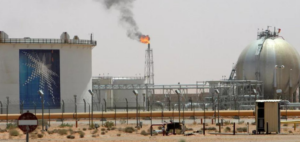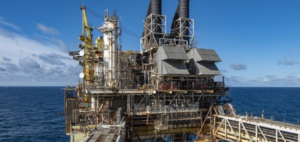TotalEnergies will increase its production by 2 to 3% over the next five years. This decision was taken at a time when many are calling for a reduction in the world’s dependence on fossil fuels. However, the company insists that it will maintain its balanced multi-energy strategy, with significant growth in the renewable electricity sector.
This announcement comes after a period of declining oil and gas production for TotalEnergies between 2019 and 2022, partly due to the COVID-19 pandemic. Until now, the company had not communicated a quantified production growth or decline target, expecting stable global oil and gas production by the end of the decade.
TotalEnergies’ ambitions
The Group has stated its intention to drastically reduce emissions from its operations, confirming its target of a 40% reduction by 2030 compared with 2015. TotalEnergies CEO Patrick Pouyanné reiterated that the company would continue to invest in new oil and gas projects to meet global demand, while diversifying into renewable electricity, particularly wind and solar power.
The company’s strategy is to achieve “more energy, more electricity, fewer emissions, growing cash flow”. According to the CEO, this strategy should enable TotalEnergies to achieve its most significant growth in the next few years, with energy production up by 4% by the end of the decade.
Future investments
This year, TotalEnergies unveiled new oil projects, notably in Surinam and Abu Dhabi, as well as in liquefied natural gas in the United States. The aim is to consolidate its position as the world’s third-largest LNG player. Patrick Pouyanné was also optimistic that his LNG project in Mozambique would resume by the end of 2023, after a hiatus in 2021 due to safety issues.
The Group plans to invest between $14 and $18 billion over the next five years, with a significant share allocated to new oil and gas projects and low-carbon energies. TotalEnergies will pursue its development strategy in the power sector, aiming to achieve 12% profitability for its power activities by 2023, compared with 10% in 2023. The company also plans to generate 100 TWh of electricity by 2030, using renewable solar, wind and gas sources.
Reviews and issues
However, this decision to increase hydrocarbon production, despite calls from climate experts to reduce dependence on fossil fuels, has drawn criticism. Some believe that TotalEnergies is not sufficiently committed to the energy transition. Louis-Maxence Delaporte, energy analyst with the NGO Reclaim Finance, denounces the fact that the company is not a real player in the energy transition.
Greenpeace reacted by describing TotalEnergies’ intentions as “window-dressing” and accusing the company of pursuing its hydrocarbon activities at the expense of the environment. Whether TotalEnergies’ ambitions are compatible with climate and environmental imperatives remains a matter of concern and debate.






















